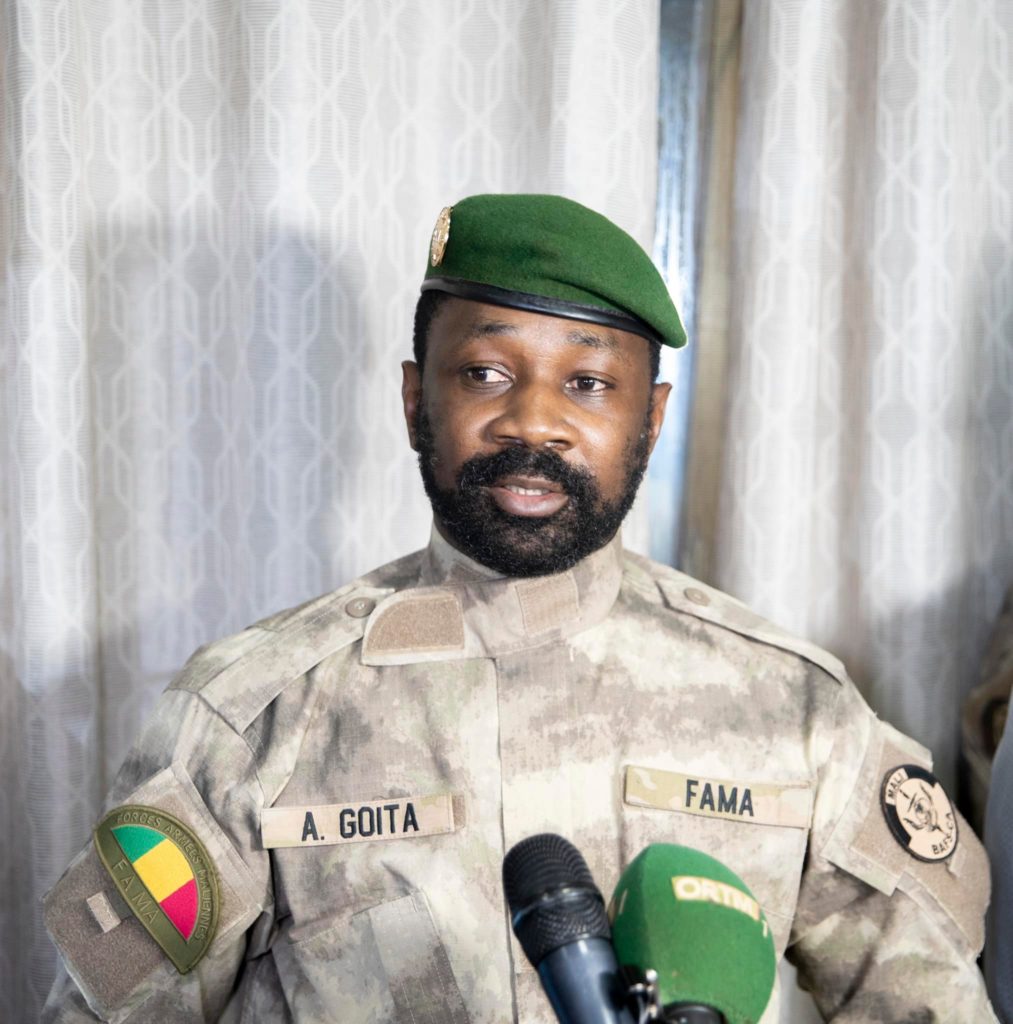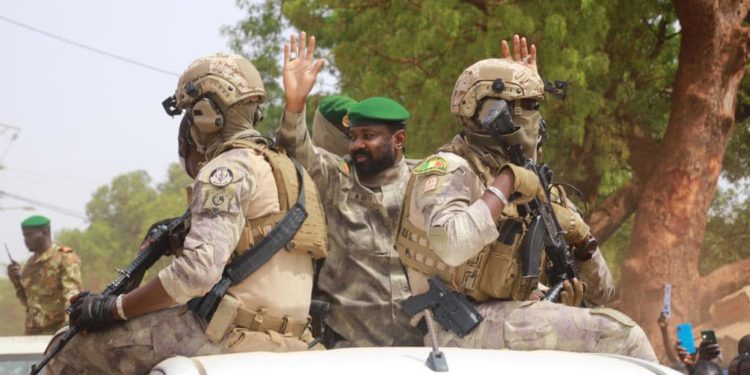West African leaders have resolved to maintain sanctions imposed on Mali at the beginning of the year and urged the military-led transition administration to continue engaging in dialogue for amicable resolution of the crisis.
The decision was taken at the just concluded extraordinary summit of heads of state and government of the Economic Community of West African States (ECOWAS) on Friday, March 25. It was convened to discuss the political situation in Mali, Guinea and Burkina Faso, which have been on the spot for military coups recently.
Mali first plunged into its current crisis in August 2020, when soldiers ousted the late former President Ibrahim Boubacar Keita.
Nearly a year later, the military staged a second coup, ousting a civilian transition administration it had installed under pressure from the subregional grouping.
ECOWAS had given the junta 18 months to conduct elections and transfer power to a civilian administration. But the junta failed to meet that demand, prompting the regional bloc to impose tougher sanctions last January.
Friday’s meeting was meant to review progress in negotiations since then. The West African leaders, in a communique issued at the end of the Summit, lamented lack of progress and expressed concern over the deteriorating humanitarian situation in the country.
The Mali crisis is linked to an Islamist insurgency in the north and central regions of the country.
“The Authority notes that the security and humanitarian situation in Mali continues to deteriorate with attacks by terrorist groups resulting in military and civilian casualties,” the communique reads in part.
The sanctions in January came after the junta proposed a five-year transition plan, a move the regional leaders outrightly rejected.
According to the ECOWAS communique, during the last mission of the bloc’s mediator to Mali from 18th to 20th March, the Transition Authorities proposed a two-year transition, in addition to the 18 months that have already elapsed. The mediator, former Nigerian President Goodluck Jonathan and his team, reportedly made a counterproposal of between 12 and 16 months. The ECOWAS leaders urged the Malian authorities to go by this offer.
“The Authority notes that, in view of the global political and security situation, there is an urgent need to reach an agreement in order to avoid further deterioration of the situation in the country,” they said.
Junta leader Col. Assimi Goita was expected in Accra, but he failed to turn up. There was no public statement on the reason for his absence, which the ECOWAS leaders described as regrettable.
“The Authority urges the Transition Authorities to adhere to the additional period of 12 to 16 months which has been agreed by the joint technical team ECOWAS/AU/UN for the extension of the transition with effect from 15th March 2022, taking into account the activities required for the conduct of the presidential elections,” the Communique says.

The leaders also resolved to send Mr Jonathan to Bamko to continue and finalise the discussions on the chronogramme with the Transition Authorities. They said they hoped to continue the dialogue with a view to reaching an agreement to ensure a gradual lifting of the sanctions. They also called on partners to increase their humanitarian support to the country.
The sanctions, which were imposed on 9th January at a Summit in Accra, was criticized by the junta which described it as illegal.
On the eve of the weekend summit, a top regional court passed a ruling in favour of the Malian authorities.
Following ECOWAS’ sanction, the eight-member francophone West African Economic and Monetary Union (UEMOA) froze all of Mali’s assets and banned it from doing business with all its institutions.
The Malian junta filed a legal complaint with the UEMOA court in February, challenging that decision which it says was not only illegal but would also have severe consequences on the population. The court on Thursday suspended the sanctions.
Sources familiar with the matter say the decision is only a temporary measure pending a detailed ruling of the court.
Also on the table for discussion on Friday by the ECOWAS leaders were the situation in Guinea and Burkina Faso.
In Guinea, Junta leader Col. Mamady Doumbouya, who seized power on September 5, 2021, has been accused of dragging his feet on his promises to transfer power to a civilian administration. ECOWAS gave the junta given up to April 25 to provide a clear transition timetable or face sanctions.
In Burkina Faso, where the military ousted former president Roch Marc Christian Kaboré on January 24, the situation remains ever volatile.
Like Mali, the Burkinabe military justified its coup on the alleged incompetence of the government it ousted in handling the Islamist insurgency which is ravaging the larger Sahel region.
The ECOWAS leaders expressed “deep concern” at the continued detention of the deposed former President, in spite of several appeals for his unconditional release.
Junta leader Lieutenant-Colonel Paul-Henri Sandaogo Damiba’s Transition Charter released on March 1 proposes a three-year transition period, which ECOWAS opposes.
While reiterating their “strong condemnation of the coup,” the ECOWAS leaders restates their demand for the immediate and unconditional release of President Kaboré.
They also upheld the suspension of Burkina Faso from all ECOWAS institutions until constitutional order is restored.
The Summit also demanded the finalisation of an “acceptable transition” timetable no later than 25th April 2022.
“After this deadline, economic and financial sanctions will be immediately applied,” the statement notes.
It called on the International Community to strengthen its humanitarian support to Burkina Faso.
The bloc also resolved to appoint a mediator for Burkina Faso to facilitate dialogue among all stakeholders and ensure a smooth transition.






















